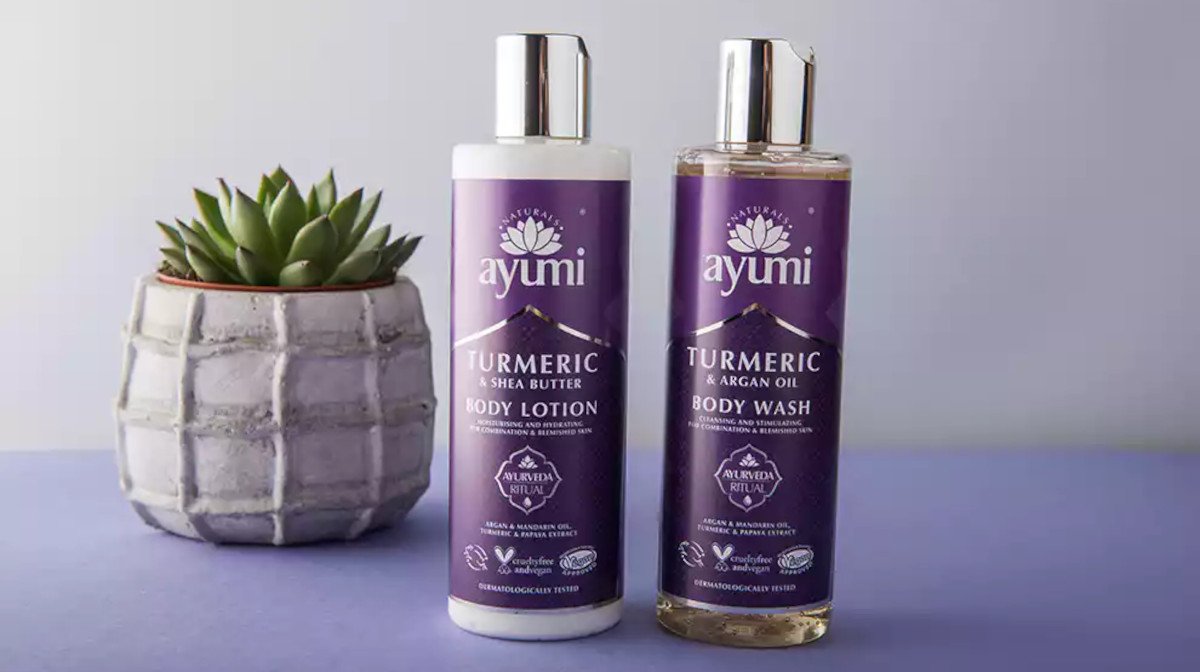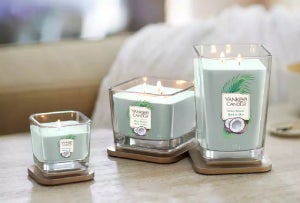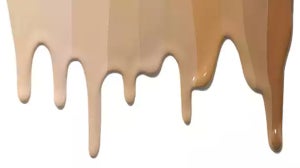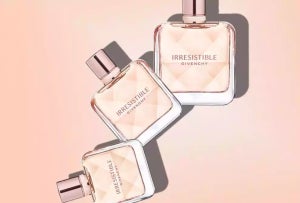What is a natural body lotion?
A natural body lotion – just like any natural product – uses a combination of pure ingredients and no, or very few, others. Natural body lotions can also be organic, which is a bonus, and you should always look out for sustainable, cruelty-free options, too.
But aren’t natural products always sustainable?
Nope! Just because a cosmetic – whether it’s a body lotion or something else – is natural, that doesn’t mean it’s sustainable.
Our planet has a finite amount of resources, which means there’s always a limited amount of natural ingredients available. For example, if we keep cutting down aloe vera without planting more, one day, we’re going to run out.
Many natural cosmetics brands are started out of respect for the planet. Still, less considerate companies are jumping on the bandwagon, producing products to appeal to the market without thinking about sustainability.
Before you start using a new natural cosmetic, do a little research to ensure the brand is really sustainable. Do they use natural ingredients responsibly? What about their packaging? Is it recyclable? Ask these important questions before getting hooked on a new nourishing lotion.
Is there a difference between natural and naturally derived?
Yes, and it’s a big one! Natural and naturally occurring ingredients are delivered in their pure form. For example, coconuts and coconut oil are natural ingredients.
If an ingredient is naturally derived, it has come from nature – kind of. The difference is that these ingredients are taken from nature and used artificially to create an unnatural product. For example, extracting components from coconuts and chemically altering or concentrating them.
So, when you’re shopping around for new natural body lotions, watch out for naturally derived on the label. Derived means the ingredients have been messed with before going into your product.
The best ingredients in natural body lotions
Want an even better way to check your natural body lotions? Take a look at the ingredients; you should recognise everything on the list, with few or no confusing chemicals on the lineup.
Remember, not every natural ingredient is suitable for the skin! There’s a reason we turn to beauty brands instead of just slathering on the contents of our fridge and fruit bowl. Still, there are plenty of options out there that can help tackle all kinds of concerns, from breakouts and pigmentation to soothing irritation and sunburn.
So, what are the best natural body care ingredients? Let’s take a look…
- Aloe vera
- Avocado oil
- Chamomile
- Cocoa butter
- Coconut oil
- Green tea
- Hemp seed oil
- Jojoba oil
- Lavender oil
- Olive oil
- Primrose oil
- Rosehip seed oil
- Shea butter
- Tea tree
Keen to know more about these natural skincare musts? Let’s break down what each ingredient can do for your complexion, so you can decide whether you want to look for it in your new natural body lotion.
Aloe vera
Aloe vera is a type of succulent, like a cactus, which is native to tropical climates worldwide. Many body lotions contain this naturally soothing ingredient. You can also buy it pure or grow it and harvest the gel yourself.
Aloe is widely available and popular in many products, from drinks to cosmetics and lotions, thanks to its vitamins and anti-inflammatory properties. It also promotes healing, so we often use aloe vera in aftersun and other types of body lotion.
What else can aloe vera do? It’s a natural antibacterial and can help reduce and soothe stretch marks during pregnancy.
Avocado oil
Avocadoes are packed with healthy fats, which is one reason we love eating them so much. Avocado oil comes from the green pulp of the fruit, the part we eat, rather than from the seed like many other oils.
Avo oil contains many essential vitamins and minerals, including vitamins A, B1, B2, B12, D, and E. Not to mention beta carotene, which has antioxidant effects and can help boost skin health and UV protection.
Chamomile
Much more than a bedtime tea, chamomile has lots of exciting uses for skincare. This herb comes from the daisy-like flowers of the Asteraceae family. It’s been used for centuries as a natural remedy for several health concerns.
Chamomile contains various flavonoids, which can protect and repair skin from UV damage. There are many other bioactive compounds in chamomile, but what can this natural ingredient do?
The herb is most famous for its anti-inflammatory properties. Chamomile can penetrate deep into the skin and treat mild to moderate eczema, irritation, sunburn, and rashes.
Cocoa butter
Cocoa has been used in food and medicine for thousands of years, stretching back to the ancient times of the Aztecs and Mayans. This nourishing natural ingredient offers benefits when applied to the skin, too, which is why you’ll find it in so many natural products.
Cocoa butter is an effective emollient that can protect skin from oxidative stress. At the same time, anti-inflammatory and antioxidant properties can help protect against UV. It’s also been proven to slow down enzymes that break down skin cells as we age. That means cocoa butter in skincare can help slow the natural ageing process!
Coconut oil
Is there anything coconut oil can’t do? Whether you use it in cooking or apply it to your skin and hair, it’s always worth keeping a jar around.
Coconut oil contains plenty of vitamin E and bio-active compounds and is one of the only hypoallergenic oils. We love coconut oil body lotions to help treat mild eczema, dermatitis, and cuts thanks to its natural anti-inflammatory and antibacterial properties. It’s also an excellent ingredient for hydrating and locking in moisture.
Green tea
Green tea is a favourite beverage worldwide, and it’s packed with healthful antioxidants, which means lots of good stuff for your body.
In skincare, green tea can have anti-carcinogenic and anti-inflammatory properties, which help slow ageing, repair skin, and reduce oxidative stress.
Hemp seed oil
Hemp seed oil comes from pressing – you guessed it – hemp seeds from the cannabis plant. It contains vitamins A, B, B1, C, and E. Not to mention essential minerals like iron, sodium, copper, calcium, and beta carotene.
When applied to the skin, hemp seed oil can help reduce oxidative stress and ageing and take care of top-layer moisture.
Jojoba oil
We see jojoba oil in lots of our favourite natural body lotions and skincare, but what is it, and what can it do for us? Jojoba oil comes from the seed of the Simmondsia Chinensis plant, which grows in hot, dry climates like Southern California and Mexico.
It contains various fatty acids and alcohols; its chemical makeup is very similar to our skin’s natural oils. Thanks to this, jojoba oil absorbs quickly and is an effective moisturising and balancing ingredient. It also has natural anti-inflammatory and antioxidant properties that make it great at healing burns, sores, acne, and other skin concerns.
Lavender oil
Did you know there are almost 50 species of lavender growing globally? The essential oil is distilled from the plant’s purple flower; it smells beautiful and has been used for medicine and aromatherapy for centuries. But what can it do for our skin?
The composition of lavender varies from plant to plant. Still, overall it’s shown signs of effectively repairing skin injuries, promoting collagen, and relieving eczema and psoriasis.
Olive oil
Olive oil comes from olives – obviously. It’s reportedly been used as a skincare remedy since Ancient Egyptian and Greek times, and it’s easy to see why.
Olive oil contains fatty acids and squalene, one of the most common fats produced by our skin. It’s an excellent moisturiser suitable for the most sensitive skin; many parents use olive oil to give their newborns a comforting massage.
Primrose oil
Primrose oil is rich in fatty acids and is known for its soothing properties. It’s native to North America, where it’s been used for its medicinal qualities for centuries, even among indigenous tribes like the Cherokee.
It’s a natural emollient, which means it can help heal and hydrate rough, damaged skin and effectively treat eczema and other mild concerns.
Rosehip seed oil
If you’re big on skincare, you might already be familiar with rosehip seed oil, which – it should be noted – is different to rose oil. This exotic natural ingredient includes ascorbic acid, phenolic compounds, and lots of fatty acids like omegas 3 and 6. Not to mention vitamins A, B, C, D, and E!
Why use rosehip seed oil? It’s excellent at repairing and strengthening dry, irritated skin. It can help heal damage and reduce signs of ageing, too.
Shea butter
From the nut of the African shea tree, shea butter has been used in cosmetics since ancient Egyptian times. It’s bursting with beneficial compounds, including various essential fatty acids and antioxidants.
Shea butter can be used to treat many skin concerns, from burns and dryness to rashes and blemishes. It’s a great all-rounder for moisturising and nourishing the skin.
Tea tree
Tea tree oil has been used by Australian natives for hundreds of years. It contains lots of valuable compounds and has natural antibacterial properties. Tea tree is also antifungal and can soothe irritation, so it’s often used to treat acne and rashes, as well as burns and insect bites.
Most often, tea tree is found in face washes and spot treatments. Still, you can enjoy lots of natural body lotions that make use of this powerful soothing ingredient.
Choosing the best natural body lotions for you
There is no one best natural body lotion out there. The right product, as always, is the one that’s right for your unique body and skincare concerns. Still, we do have a few favourites that it would be rude not to share…
- Burt’s Bees Cocoa & Cupuacu Butters Body Lotion
- Karethic Le Secret Des Gazelles Body Balm
- Ayumi Turmeric & Shea Butter Body Lotion
- The Organic Pharmacy Apricot & Chamomile Lotion
- Shea Moisture Coconut Oil Daily Hydration Body Lotion
- Alteya Organics Rose Otto Body Lotion
- CB&CO Hemp Body Moisturiser
- The Naked Bee Coconut & Honey Hand & Body Lotion
- Jason Soothing 84% Aloe Vera Hand And Body Lotion
- The Body Shop Almond Milk Honey Body Lotion
- Aveeno Moisturising Cream
For more tips on choosing the best natural skincare and cosmetics, keep exploring the Fragrance Direct blog!








